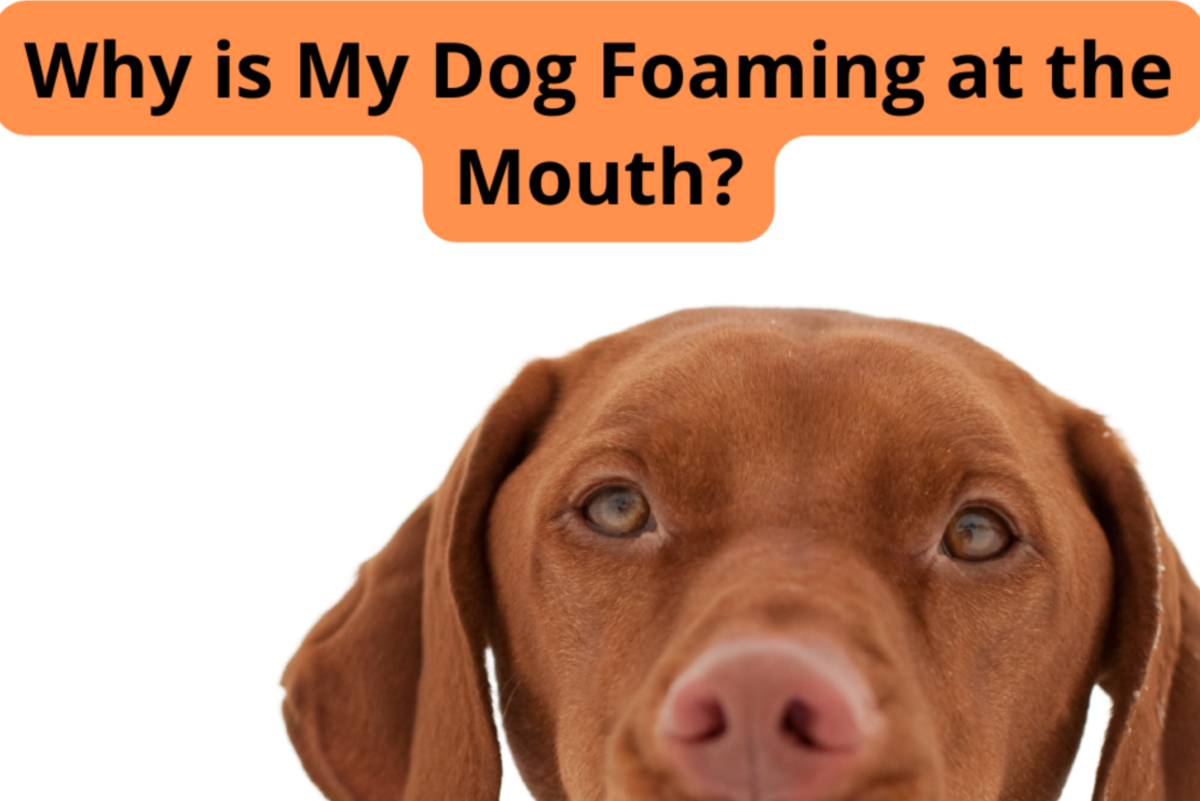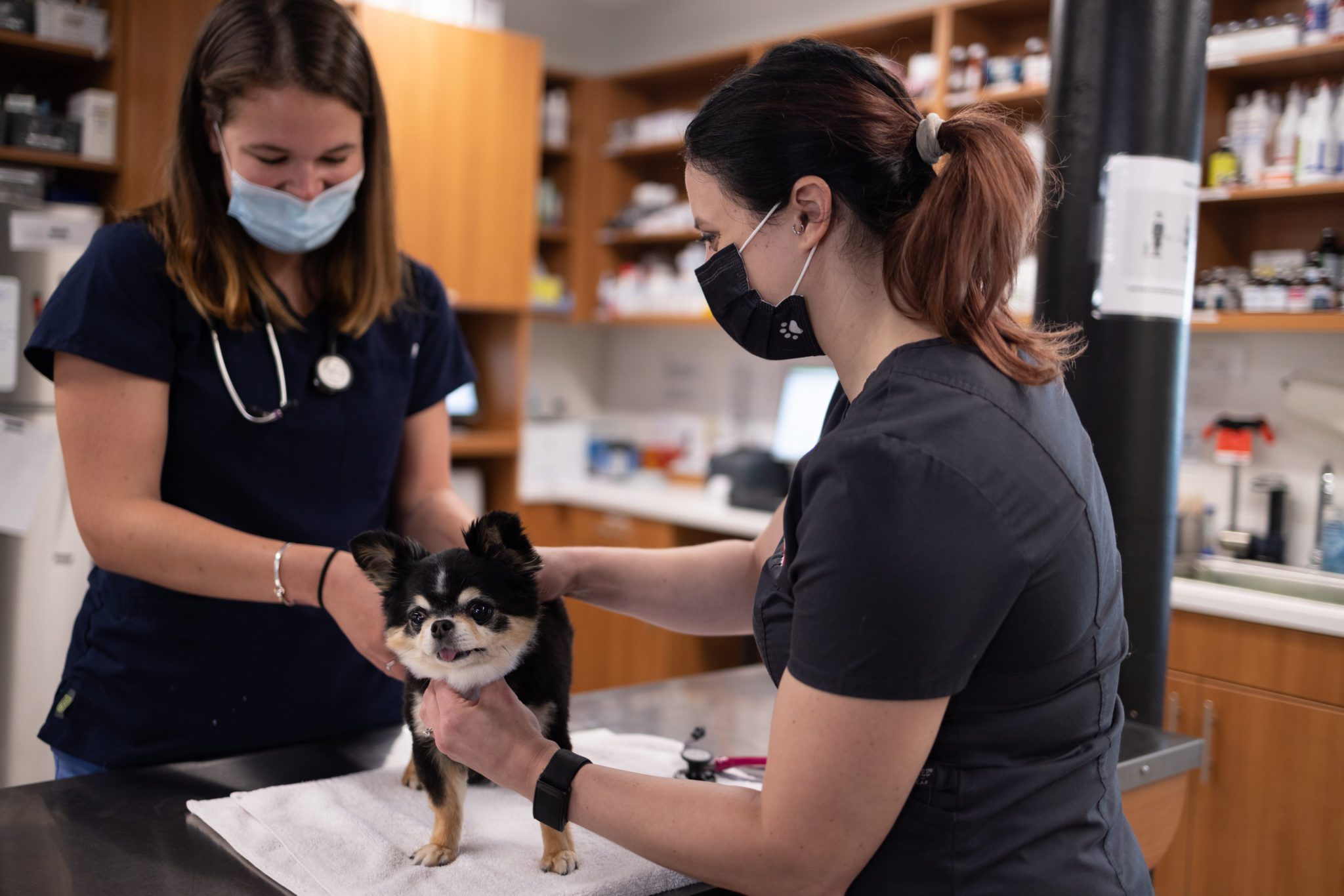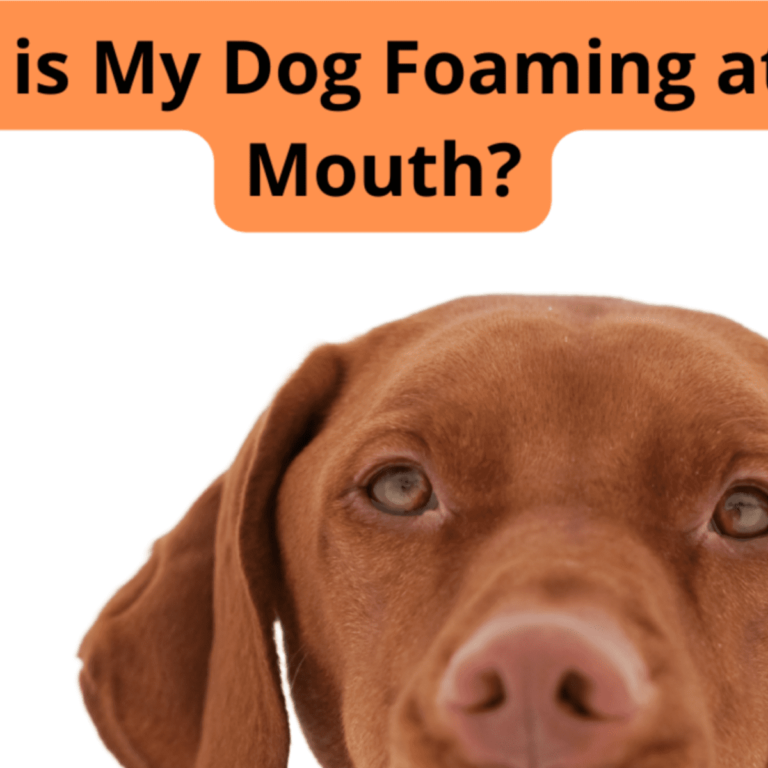If your male dog is foaming at the mouth, it could be a sign of nausea and vomiting, possibly caused by something he ate that upset his stomach. It is important to contact a vet or urgent care vet to address any potential health concerns.
Foaming at the mouth in dogs is often a result of drooling that has been infused with air due to heavy breathing or panting. However, it is crucial to rule out more serious causes such as rabies, stress, toxins, dental disease, seizures, heatstroke, or oral health issues.
Addressing any underlying health issues promptly can help ensure the well-being of your furry friend.

Credit: www.medicalnewstoday.com
Causes Of Foaming At The Mouth
Foaming at the mouth in male dogs can be a concerning symptom for pet owners. Understanding the underlying causes can help you determine if immediate veterinary attention is required. Here are some common causes of foaming at the mouth:
Rabies
Rabies is a severe viral disease that affects dogs and can lead to foaming at the mouth. It is essential to vaccinate your male dog against rabies to prevent the spread of this deadly disease.
Stress
Stressful situations or anxiety can cause dogs to foam at the mouth. Whether it’s due to loud noises, separation anxiety, or unfamiliar environments, identifying and managing stress triggers is crucial to your male dog’s well-being.
Toxins
Ingestion of toxic substances, such as certain plants, chemicals, or medications, can lead to foaming at the mouth. Keep hazardous items out of your dog’s reach and be vigilant about potential toxins in your home and surroundings.
Dental Disease
Poor oral hygiene and dental disease can cause male dogs to develop foaming at the mouth. Tartar buildup, cavities, and gum disease can lead to discomfort and contribute to excessive drooling and foaming. Regular dental care is essential for your dog’s overall health.
Seizures
Seizures can cause severe muscle spasms and convulsions in male dogs, leading to foaming at the mouth. If your dog experiences seizures, it is essential to consult with a veterinarian to determine the underlying cause and establish an appropriate treatment plan.
Heatstroke
Heatstroke is a life-threatening condition in dogs that can occur when they are exposed to high temperatures or excessive physical activity in hot weather. Foaming at the mouth can be a symptom of heatstroke, so it is crucial to keep your male dog cool and hydrated in hot climates.
Nausea And Vomiting
Experiencing nausea and vomiting can also cause foaming at the mouth in male dogs. If your dog is foaming at the mouth and followed by vomiting, it may indicate an upset stomach or ingestion of something harmful. Immediate veterinary attention is recommended.
Oral Health Issues
Dogs, especially certain breeds, are prone to dental diseases like tartar buildup, cavities, and gum disease. These conditions can lead to excessive drooling and foaming at the mouth. Maintaining good oral hygiene and seeking regular dental care for your male dog is essential.
Overexertion
Overexertion during physical activity can cause male dogs to foam at the mouth. Heavy breathing and panting can lead to the formation of foam as the drool becomes infused with air. Ensure that your dog gets enough rest and avoid excessive strain during exercise or play.

Credit: pethelpful.com
Understanding Foamy Saliva
If your male dog is foaming at the mouth, it could be due to nausea and vomiting caused by eating something that upset their stomach. To ensure their health, it’s essential to contact a vet or urgent care vet immediately.
Dehydration
Dehydration is one of the common causes of foamy saliva in dogs. When a dog’s body is dehydrated, the saliva can become thicker and stickier, leading to a frothy appearance. It’s important to ensure that your male dog is drinking enough water throughout the day to prevent dehydration and maintain proper hydration levels.
Acid Reflux
Gastroesophageal reflux disease (GERD) can also cause foamy saliva in dogs. This occurs when stomach acid flows back into the esophagus, leading to the production of foamy saliva. If your male dog is experiencing acid reflux, it’s important to consult with a veterinarian for proper diagnosis and treatment.
Dog Panting Or Heavy Breathing
Dogs may also produce foamy saliva due to panting or heavy breathing. When dogs pant, their drool mixes with the air, creating foam or froth. This is a normal response and does not necessarily indicate any underlying health issues. However, if your male dog is panting excessively or having difficulty breathing, it could be a sign of a more serious condition and should be evaluated by a veterinarian.
In Conclusion
Foamy saliva in male dogs can have various causes, including dehydration, acid reflux, and excessive panting or heavy breathing. It is important to monitor your dog’s behavior and consult with a veterinarian if you notice any concerning symptoms. By understanding the possible causes of foamy saliva, you can better care for your male dog’s health and well-being.
What To Do When Your Dog Is Foaming At The Mouth
If you notice your male dog foaming at the mouth, it’s important to take action immediately to ensure his health and safety. Foaming at the mouth can be a sign of various underlying issues, and it’s essential to identify the cause and seek appropriate treatment. In this blog post, we will discuss what steps you should take when your dog is foaming at the mouth.
Contact A Vet Or Urgent Care Vet Immediately
If your male dog is foaming at the mouth, it’s crucial to contact a vet or urgent care vet right away. Foaming at the mouth can be a symptom of a serious health problem that requires immediate attention. By contacting a professional, you can get expert guidance and advice on how to proceed.
Identify The Cause
Once you’ve contacted a vet, the next step is to identify the cause of your dog’s foaming at the mouth. There can be several reasons behind this behavior, including:
- Rabies
- Stress
- Toxins
- Dental disease
- Seizures
- Heatstroke
- Nausea and vomiting
- Oral health issues
- Overexertion
It’s important to determine the root cause so that the appropriate treatment can be administered.
Seek Appropriate Treatment
After identifying the cause, it’s crucial to seek appropriate treatment for your male dog. The treatment will depend on the underlying issue, and that’s why contacting a vet is essential. They will be able to provide a tailored treatment plan based on your dog’s specific condition and needs. It may include medications, lifestyle changes, or further diagnostic tests.
In conclusion, if you notice your male dog foaming at the mouth, it’s important to act quickly. Contact a vet or urgent care vet immediately, identify the cause, and seek appropriate treatment. By taking these steps, you can ensure your dog’s health and well-being.

Credit: veterinaryemergencygroup.com
Frequently Asked Questions Of Why Is My Male Dog Foaming At The Mouth
Should I Be Worried If My Dog Is Foaming At The Mouth?
If your dog is foaming at the mouth and followed by vomiting, it may be a sign of an upset stomach. Contact a veterinarian or urgent care vet immediately to address any potential health concerns.
What Does White Foamy Saliva Mean In Dogs?
Foamy saliva in dogs is often caused by nausea and vomiting, indicating an upset stomach. It can also be a result of dehydration or acid reflux. If your dog is foaming at the mouth, contact a vet immediately to address any potential health concerns.
What Causes Foamy Saliva?
Foamy saliva in dogs can be caused by various factors such as dehydration, acid reflux, dental diseases, exertion, or nausea and vomiting. It is important to consult a veterinarian if you notice foaming at the mouth in your dog, especially if it is accompanied by other symptoms or health concerns.
Why Is My Weiner Dog Foaming At The Mouth?
Foaming at the mouth in dogs can be caused by various factors such as rabies, stress, toxins, dental disease, seizures, heatstroke, nausea, vomiting, oral health issues, or overexertion. If your Weiner dog is foaming at the mouth, it could be a sign of hyperactivity or the need for rest.
It is best to consult a veterinarian to determine the cause and appropriate action.
Conclusion
Foaming at the mouth in male dogs can be caused by various factors such as nausea, vomiting, stress, toxins, dental disease, seizures, heatstroke, or oral health issues. If your dog is experiencing this symptom, it could suggest an underlying health concern that needs to be addressed by a veterinarian.
Foaming at the mouth accompanied by vomiting may indicate an upset stomach caused by something your dog has eaten. It’s important to seek immediate veterinary care for proper diagnosis and treatment. Make sure to monitor your dog’s behavior and contact a professional if you have any concerns.



